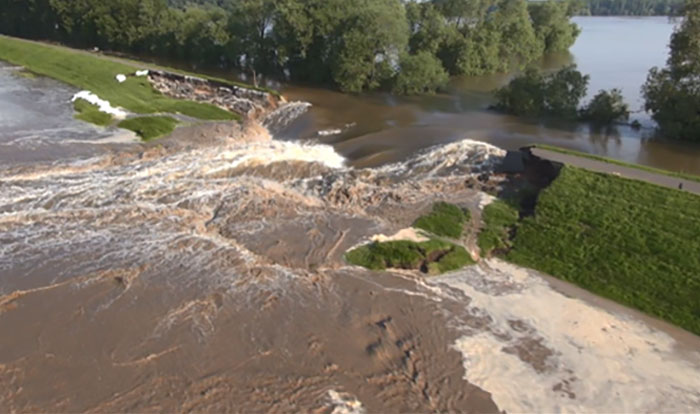Artículos
MAR 13 2020 l International Journal of Geoengineering Case Histories l
Forensic Analysis of Levee Failures: The Breitenhagen Case

Abstract
Forensic analysis of past failures is valuable to improve our understanding of levee behavior. In this article a new systematic approach of forensic analysis for levee failures is proposed and applied to the Breitenhagen levee breach that occurred along the river Saale in Germany in 2013. The purpose of this study is to identify the cause of the breach based on the proposed approach, even though limited data is available. Based on the information prior, during and after the breach of the levee, a slope stability model is developed for the entire event. First, results from this model are obtained based on the expected values of the uncertain parameters and the best estimates of the situation. Uncertainty of the model is included in the calculation subsequently by defining possible failure scenarios. The most likely failure scenarios are derived from the data and included into the model so that it is possible to eliminate or validate all possible causes by means of a sensitivity calculation. It is concluded that the levee breach is likely caused by locally weak soil conditions, unexpected high water pressures due to a connection between a pond and the aquifer and unexpected saturation of the levee. These conditions are associated with the occurrence of a previous breach at this location.
Keywords
forensic engineering, slope instability, hindcasting, river levee, levee breach
Citation
Kool, J. J., Kanning, W., Heyer, T., Jommi, C., Jonkman, S. N. (2019). Forensic Analysis of Levee Failures: The Breitenhagen Case, Vol. 5, Issue 2, p.70-92. doi: 10.4417/IJGCH-05-02-02
|
VER TODOS
LOS ARTÍCULOS
 Afiliación Afiliación
 Formularios Formularios
|






